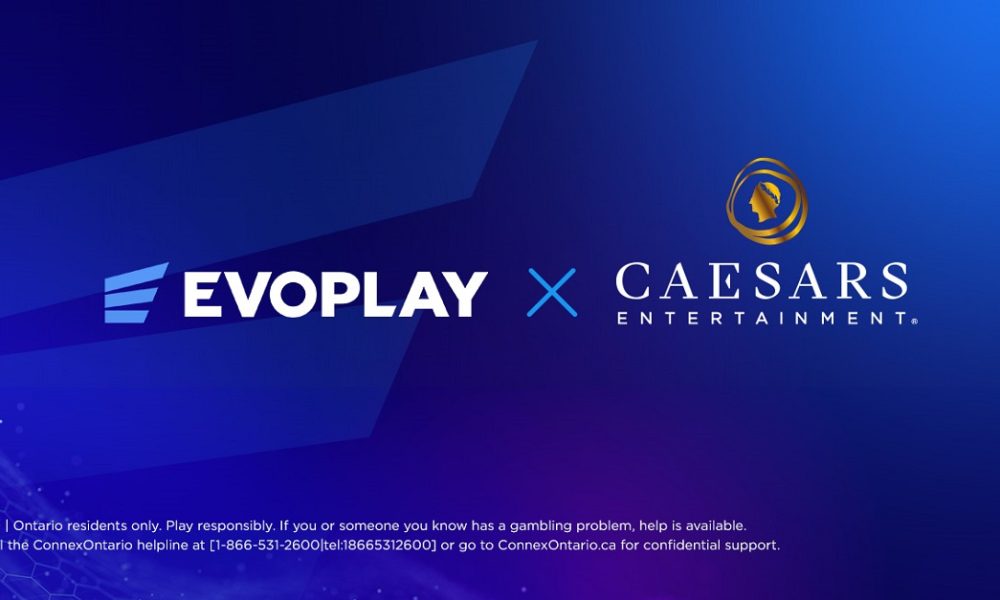

Canada
Paysafe to Acquire PagoEfectivo
Payment solutions provider Paysafe has signed a definitive agreement to acquire the Peruvian alternative payments (APM) platform PagoEfectivo.
For Paysafe, this latest investment is a strategic foothold in Latin America, one of the world’s fastest-growing online markets where merchants and consumers alike are demonstrating an increased appetite for alternative payment methods and online banking solutions.
PagoEfectivo, a subsidiary of Empresa Editora El Comercio S.A., (Grupo El Comercio), is a market leader in Latin America in the provision of eCash and online banking payments that allow merchants to offer alternative payment methods (APMs) at the check-out, in turn enabling more consumers in the region, many of whom are underbanked, to transact online.
As part of the deal, the PagoEfectivo team, including CEO, Juan Fernando Villena, will join Paysafe and become part of the company’s growing global eCash and online banking solutions team.
“I am thrilled we are announcing this acquisition. The APM market in Latin America is a thriving one and PagoEfectivo is a market leader in eCash and online banking solutions and the team also brings deep banking relationships and 140,000 distributor partnerships across Peru and Ecuador. We continue to see increasing demand from online merchants wanting to integrate the full payments offering into their check-out, be that seamless card, wallet, cash or bank transfer solutions – and to be able to do this internationally across multiple markets. Once integrated, we believe we will have the opportunity to add new revenues as we cross-sell to each other’s international merchant bases,” Udo Mueller, CEO of Paysafe’s eCash division, said.
“This acquisition reinforces our strategy of investing in, and growing our core, specialized offering in payments processing, digital wallets, eCash and online banking solutions and gives us an important, strategic foothold in Latin America; a region which is expanding fast in eCommerce in general and specifically in the specialized vertical industries such as iGaming, travel, entertainment and digital goods which are very much our sweet spot. Our cloud-based technology stack and global enterprise relationships will only help accelerate PagoEfectivo’s very strong growth. We very much look forward to welcoming the PagoEfectivo team onboard,” Philip McHugh, CEO of Paysafe, said.
“The sale of PagoEfectivo has generated high levels of interest because of PagoEfectivo’s excellent performance over recent years as well as its future growth potential. This performance is the result of the continuous growth of eCommerce in this region as well as our Group’s ability to create compelling new digital brands and products. I’m excited for the PagoEfectivo team as they embark on this next stage of their journey, now as part of a specialized payments company that is investing in alternative payments around the world. On behalf of the entire Grupo El Comercio team, we wish the team all the very best for the future; I believe this sale will be a success story for all concerned,” Mariano Nejamkis, Grupo El Comercio’s General Manager of Press and Digital Businesses, said.
Estudio Rodrigo is serving as Paysafe’s legal and regulatory counsel on the acquisition. The transaction is expected to close by the end of August, subject to customary closing conditions. Until then, the two groups will continue to operate as independent organizations. The financial terms of the transaction were not disclosed.
Canada
absolutebet Secures AGCO Registration as an Internet Gaming Operator in Ontario

Internet Gaming Operator by the Alcohol and Gaming Commission of Ontario (AGCO).
This significant milestone authorizes absolutebet to offer regulated iGaming services in Ontario’s legal market under the oversight of AGCO and iGaming Ontario (iGO).
The registration marks a key step in absolutebet’s mission to bring a trusted, responsible, and innovative online casino experience to Ontario players. absolutebet is committed to operating with integrity and transparency, meeting all provincial standards for player protection, responsible gambling, anti-money laundering, and game integrity.
“Securing AGCO registration is more than a milestone—it’s the start of absolutebet’s journey in one of the most exciting regulated markets in the world,” said Chen Truman, Founder of absolutebet. “We are building a brand that will grow with the Ontario community and set the stage for future expansion.”
On the regulatory milestone, Krisztina Kalla, Legal & Regulatory Compliance Advisor of absolutebet, commented: “I’m incredibly proud to see all the hard work behind this license pay off. Securing AGCO registration has taken months of preparation and close collaboration with regulators and partners. I am very happy to see the result of that work, and even more excited as we move into the launch phase and open up the absolutebet community to Ontario players in a fun and responsible way.”
Ontario is recognized as one of the most competitive and fast-growing regulated iGaming markets in North America. With AGCO registration secured, absolutebet will move forward with the final stages of its iGO onboarding process in preparation for launch.
The post absolutebet Secures AGCO Registration as an Internet Gaming Operator in Ontario appeared first on Gaming and Gambling Industry in the Americas.
Alex Malchenko Head of Sales at Evoplay
Evoplay strengthens Ontario presence in partnership with Caesars Entertainment

Evoplay, the award-winning game development studio, has partnered with Caesars Entertainment to expand its footprint in the Canadian market, following its initial entry earlier this year. The partnership integrates 20 of the studio’s top-performing titles onto Caesars Palace Online Casino, Horseshoe Online Casino and Caesars Sportsbook & Casino in Ontario, including fan-favourites such as Hot Triple Sevens, Triple Chili, and The Greatest Catch Bonus Buy.
Having announced its official entrance into Ontario in March, the collaboration with Caesars marks a significant step in Evoplay’s local strategy. Further standout releases, such as Inner Fire Bonus Buy and Hot Volcano, also launched as part of the initial package, with additional player favourites, including Fruit Nova and Ice Mania.
The collaboration underlines Evoplay’s commitment to working with leading operators to deliver high-quality content tailored to regional audiences.
Alex Malchenko, Head of Sales at Evoplay, said: “Launching with Caesars in Ontario marks a key milestone in our North American strategy.
“It reflects both the strength of our portfolio and our commitment to providing innovative, high-performing content to operators of the highest caliber.”
Ricardo Cornejo Rivas, Vice President of Online Gaming at Caesars Digital, said: “Evoplay brings a fresh and dynamic approach to online gaming, which we’re excited to offer to our players in Ontario. This portfolio of standout titles adds to our growing content library and furthering our ongoing goal of delivering top-tier entertainment experiences to our players.”
The post Evoplay strengthens Ontario presence in partnership with Caesars Entertainment appeared first on Gaming and Gambling Industry in the Americas.
Canada
iGaming Ontario Appoints Joseph Hillier as its New President and CEO

The iGaming Ontario Board of Directors has announced Joseph Hillier as the organization’s new President and Chief Executive Officer, effective September 8, 2025. Joseph’s depth in the Ontario igaming market combined with successful public and private sector careers make him the ideal President and CEO at this critical point in iGaming Ontario’s growth.
Joseph was most recently Chief Strategy Officer and Corporate Secretary at the Alcohol and Gaming Commission of Ontario (AGCO), where he delivered significant strategic and regulatory initiatives across the province’s alcohol, cannabis, gaming, and horse racing sectors. Prior to the AGCO, he served as Chief of Staff to Ontario Attorney General Hon. Doug Downey and led the development, launch and implementation of Canada’s first private sector-driven igaming market and the creation of iGaming Ontario. Joseph also spent more than a decade working in the financial and legal services sectors.
The Board expressed its sincere thanks to David Smith for serving as Interim President and Chief Executive Officer since Martha Otton’s retirement.
The post iGaming Ontario Appoints Joseph Hillier as its New President and CEO appeared first on Gaming and Gambling Industry in the Americas.
-

 gaming3 years ago
gaming3 years agoODIN by 4Players: Immersive, state-of-the-art in-game audio launches into the next generation of gaming
-
EEG iGaming Directory8 years ago
iSoftBet continues to grow with new release Forest Mania
-
News7 years ago
Softbroke collaborates with Asia Live Tech for the expansion of the service line in the igaming market
-
News7 years ago
Super Bowl LIII: NFL Fans Can Bet on the #1 Sportsbook Review Site Betting-Super-Bowl.com, Providing Free Unbiased and Trusted News, Picks and Predictions
-
iGaming Industry8 years ago
Rick Meitzler appointed to the Indian Gaming Magazine Advisory Board for 2018
-
News7 years ago
REVEALED: Top eSports players set to earn $3.2 million in 2019
-
iGaming Industry8 years ago
French Senator raises Loot Boxes to France’s Gambling Regulator
-
News7 years ago
Exclusive Interview with Miklos Handa (Founder of the email marketing solutions, “MailMike.net”), speaker at Vienna International Gaming Expo 2018







